Mammootty's On The Case: Best Investigative Thrillers From Utharam To Kannur Squad
As Dominic and the Ladies Purse releases, featuring Mammootty as a detective, we revisit his top five roles in the genre that showcase his unmatched range and brilliance.
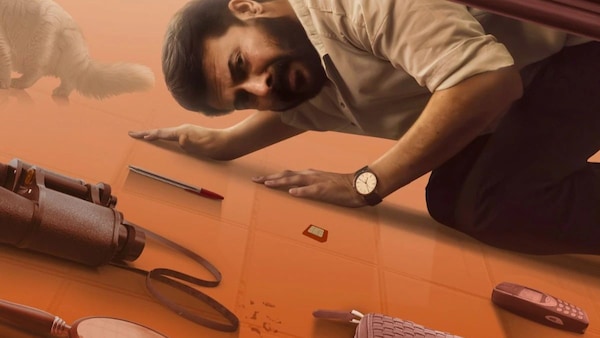
Last Updated: 05.03 PM, Jan 22, 2025
DR JABBAR PATEL who directed Mammootty in Dr Baba Saheb Ambedkar made an astute observation about the actor’s performance: “To show emotions is very easy, but Mammootty conveyed Ambedkar’s academic and intellectual brilliance throughout the film.” In hindsight, this nuanced performance is characteristic of Mammootty’s approach to detective/investigative office characters. He brings a distinctive blend of attention to detail, quick thinking, communication, interpersonal skills, and integrity to his characters, which are considered qualities essential for a detective/investigative officer.
Interestingly, except for Sethurama Iyer, his notable investigative roles don’t figure in his list of best acts. On the event of the release of Gautam Menon’s Dominic and the Ladies Purse in which Mammootty plays a detective, we thought of revisiting his top five best performances in that genre that showcase his range and skill.
August 1 (1998)
DYSP Perumal enters the narrative (directed by Sibi Malayil, written by SN Swamy) nearly an hour into the film, setting the tone of his character—brisk, efficient, and uncompromising. When he is assigned to track a sniper (Captain Rajun) who has been hired to kill the CM of the state, Perumal tackles the challenge with clinical precision. Mammootty weaves in subtle details to showcase Perumal’s professionalism, apart from infusing a casual swag, which lends a sheen to his act.
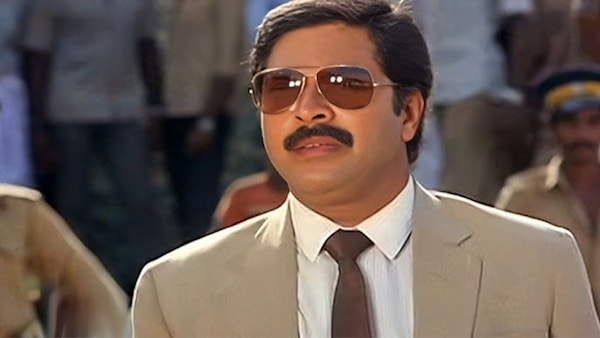
Note those seamless interactions with the CM (Sukumaran), also his former college mate, striking an impeccable balance between personal and professional demeanor. Or the standout scene that showcases Perumal’s instincts: while having a smoke outside, he instantly discards the cigar and assumes an official posture upon his senior’s arrival. It’s a fleeting moment that testifies to the actor’s mastery over the genre, serving as a textbook reference for actors seeking to portray similar roles.
Oru CBI Diary Kurippu (1988)
Sethurama Iyer’s introduction in this film directed by K Madhu (written by SN Swamy) except for that catchy BGM is very understated. Clad in crisp white shirts and khaki pants, with a calm smile, and a hint of a Tamilian twang in his Malayalam, he embodies wearying efficiency. But once Iyer delves into the case, the very traits (disconcerting calmness and thoroughness) leave a lasting impact. Iyer was an aberrant for the actor himself who had previously popularised the angry young cop on celluloid (Avanazhi, Inspector Balram). Sure, much before that Mammootty did essay Jacob Irazhi in KG George’s Yavanika (1982), a precursor to Iyer but in Oru CBI Diary Kurippu, he evolves into a sophisticated, cerebral officer.
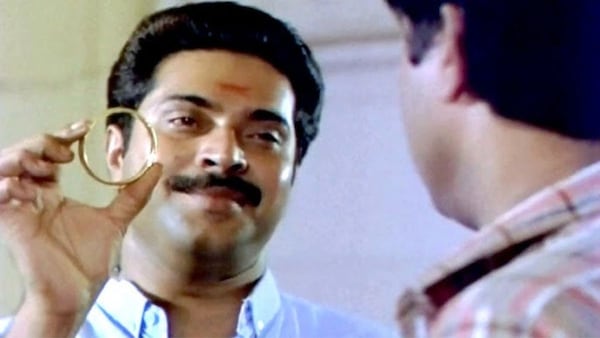
The success of Iyer spawned a franchise, with Mammootty reprising the role with the same finesse in subsequent films, including the latest instalment in 2022. In retrospect, Iyer’s enduring popularity also underscores Mammootty’s ability to bring depth and nuance to the character. Though the character doesn’t display any heroic traits, the actor portrays him with restraint, never drawing attention to himself, but quietly winning you over with his reassuring presence. Be it his unassuming interactions with his colleagues, interrogation tactics, and quiet assertiveness, Iyer commands instant respect. That’s why he remains one of the most iconic characters of the actor to date.
Kannur Squad (2023)
What strikes you about ASI George Martin (in this film directed by Roby Raj) is his understated leadership. Though he heads Kannur Squad, George eschews hierarchical norms, fostering a close bond with his team. The narrative also cleverly emphasises collaboration, giving equal space to each team member. George unlike Sethurama Iyer is a lower-ranking cop, who often faces unfair opposition from higher-ups, yet navigates these challenges with equanimity. Mammootty again understands George well, absorbing the decorum and efficiency of an ASI with ease. He is a man who appears to be unflinchingly devoted to his profession but doesn’t make heavy weather out of it.
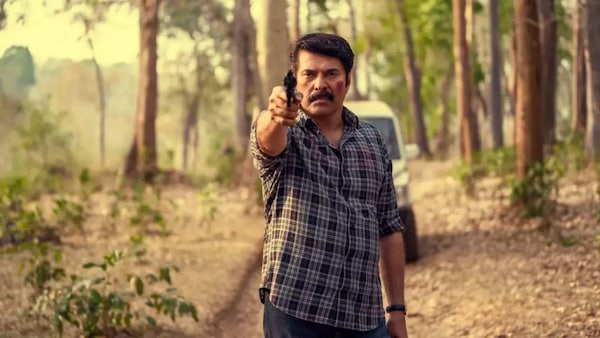
George’s character is defined by consistent restraint, even in the most chaotic situations. In a pivotal scene, when he is ordered by his superior to abort the case, George defies him with remarkable restraint and firmness, demonstrating a perfect balance between professionalism and conviction. Mammootty brings heft to the role, conveying empathy and ruthlessness as required by the situation. It’s one of those extremely believable performances.
Utharam (1989)
Based on Daphne du Maurier’s short story, No Motive, this gripping investigative thriller, directed by Pavithran and written by MT Vasudevan Nair, features Mammootty as a journalist, who becomes a private investigator to unearth the mystery behind the suicide of his friend’s wife (Saleena). The personal connection adds layers to the narrative, as Mammootty skillfully navigates the complexities of his character’s poignant bond with the deceased.
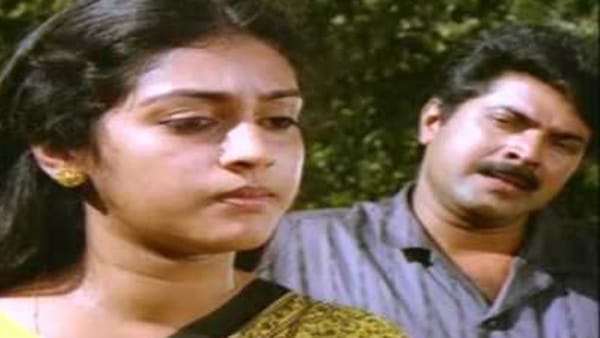
Not only does the designation of a journalist sit lightly on the actor but his transformation into a sleuth is as seamless. He deftly balances the intellectual and emotional elements of his performance, blending the traits of a meticulous investigator and a genuine admirer of Saleena’s poems. Saleena’s past is unfolded through Balu’s investigation, conversations, and encounters with other characters. The actor lends a casual efficiency to the proceedings while keeping his emotional bond with the deceased. There is also a very organic romance brewing between Balu and Saleena’s friend (Parvathy) during the course of the investigation that adds another layer to the narrative.
Ee Thanutha Veluppan Kalathu (1990)
SP Haridas in this Joshiy directorial, written by Padmarajan is a paragon of efficiency and experience. When he is deputed to nab a serial killer, he systematically gets on with his job, and steers clear of drama for quiet professionalism. Mammootty effortlessly embodies the character, showcasing his interrogation skills, emotional control, and proficiency in his position, thereby making him relatable and authentic.
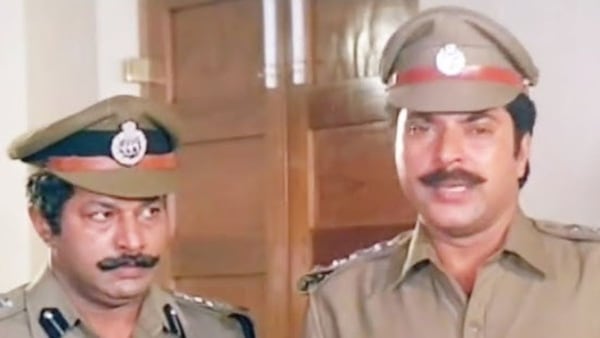
But Haridas, unlike George, is more prone to outbursts, often scolding his members for not meeting his expectations. Mammootty is subtle but effective here, conveying the character’s high standards and frustrations when they aren’t met. There are also nice little touches that offer glimpses into his personal life. A particularly endearing scene has him acknowledging his wife’s (Sumalatha) indirect involvement in the case, showcasing his appreciation for her intuition. Again, well-rounded and believable.
